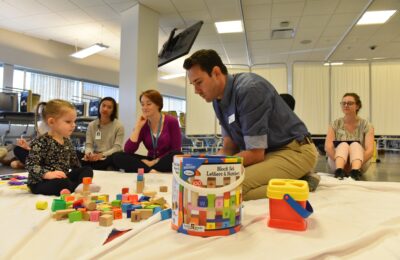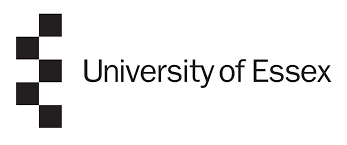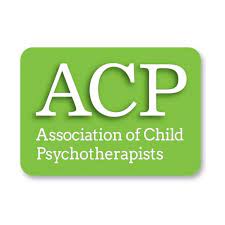
Child and adolescent psychoanalytic psychotherapy (M80N, Leeds)
Join the NHS’s most established clinical training in child and adolescent psychotherapy
Delivered by NSCAP in Leeds, this internationally renowned course comprises four years of NHS clinical training in child and adolescent psychotherapy.
Upon completion, you will qualify as a child and adolescent psychotherapist with eligibility for membership of the Association of Child Psychotherapists (ACP) which is the registering and accrediting body for the profession. The course is validated by the University of Essex, leading to the award of professional doctorate in child and adolescent psychoanalytic psychotherapy (DPsych).
Please note: you may see the M80N course also referred to as PCDOLM001 in communications from our application system.
About this course
Please see our FAQs surrounding our Child and adolescent psychoanalytic psychotherapy (M80) course.
Over four years, you will undertake taught components and clinical work placements and attend NSCAP for training events and supervision each week.
The course consists of the following elements:
- individual supervision for clinical work
- small group clinical supervision
- clinical seminars (assessments, beginnings, work with parents, endings, models of short term psychotherapy and brief consultation)
- choice of specialist multidisciplinary workshops e.g. adolescence; fostered and adopted children; early years and perinatal; trauma and early development; children who are violent, delinquent or act out sexually; and eating disorders
- experiential group relations week in year three
- theoretical lectures and reading seminars
- research teaching: methods and skills
- workshops, supervision and support for research project development, proposals and ethical approaches
- academic support and assessed academic work
- individual tutorials and departmental/clinic events
You will also undertake clinical work under supervision, as a member of a clinical team and will:
- work with long term psychoanalytic cases
- work with short term psychoanalytically-based therapy offered across the age range
- gain experience and training in assessments and brief-focused therapeutic work
- gain experience with parents and parental couples of referred children
- gain experience in generic child mental health work, including family work
- develop clinical specialism(s)
- undertake a research project
During the first year seminars on research methods and skills, you will be introduced to key research paradigms, quantitative and qualitative health care research methodologies and a range of research designs. You will then be supported to formulate a research question, usually linked to your clinical experience or your workplace, and develop your dissertation proposal for registration for a professional doctorate, to undertake the data collection and writing up of your findings.
You will be fully supported by a research supervisor and will also attend research workshops with your peers. The annual cross-programme research week offers access to the wider research culture at the Tavistock and Portman.
Please note that applications will close on Sunday 21st January 2024.
Who is this course for?
We seek to recruit a diverse group of people who have a lively interest in and aptitude for working in mental health services for children and young people (ages from 0-25) and their families.
Course details
In order to undertake this course, we ask that you:
- have completed our Working with children, young people and families: a psychoanalytic observational approach (M7) course or equivalent. (Applicants who have completed an observation course at a training establishment other than Leeds are welcome to apply to the NSCAP for the clinical training, but may have to complete additional requirements prior to acceptance. You must have completed either course to MA level if you have not previously completed an undergraduate degree)
- have substantial experience of working with children and young people of varying ages, with experience gained in a number of settings including health, education and social care, and
- are strong in personal suitability
Personal suitability criteria include:
- both sensitivity and resilience to meet the emotional demands of the training
- sustained interest in infants, children and adolescents and the ability to engage and build relationships with them
- awareness of the impact you have on others and the impact of others on you
- respect for others’ difference, identity and individuality
- the ability to keep personal and professional boundaries
- the ability to ask for and use help
- the ability to keep thinking under pressure
- excellent written and spoken communications skills
Please note: although it is not a definite requirement for applicants to have had analysis or psychoanalytic psychotherapy during the pre-clinical course, it is strongly recommended that once or twice weekly treatment is undertaken in this period.
If this has not been possible, one or more consultations with a training analyst or psychoanalytic psychotherapist recognised by NSCAP and the ACP is considered to be a necessary part of the process of considering making an application to the clinical training.
This is a funded course. In order to take up a place on the course, all new students need to apply for a fully funded NHS trainee child psychotherapy post in the north of England. There are competitive interviews for these posts.
Anyone who has been offered a place on the course who is unsuccessful in their application for a trainee child psychotherapist post cannot take up a place on the training and will need to reapply for an NHS trainee post the following academic year.
Assessment
Practice-based learning is ongoing throughout the programme with defined progress points at the end of each year, and joint planning between you, your placement supervisor and your tutor for the next year’s requirements.
This ensures that the required professional competencies can be met by the end of the programme so that you will be eligible for full membership of the ACP. There are also academic submissions each year, building progressively so that by the end of the course you will be ready to submit a substantial portfolio of clinical and research work, which will be assessed by viva.
Attendance
This course is full time, between your clinical work in placement and time for training. For each week of term (three terms of ten weeks each), a full day on Thursday at NSCAP is required, as well as an additional training day on Thursdays at end of each term.
Qualified child psychotherapists can work in public services such as the NHS or voluntary sectors. Given that training posts are fully funded by Health Education England, the expectation is that post-qualification you would work in the NHS or the voluntary sector.
However, you are eligible to work in private practice. It is strongly recommended that child psychotherapists continue to have supervision post-qualification. This is expected by the ACP and is part of continued CPD after qualifying.
Why study with us?
The clinical training in child and adolescent psychotherapy offered by NSCAP is funded by the NHS in the north of England. NSCAP is one of five centres providing training in child and adolescent psychotherapy in the UK.
This course will help you gain highly specialised skills in clinical work and research with children, adolescents and their families – including those who have experienced trauma, abuse, social disadvantage or discrimination. It will also allow you to study within a supportive peer group and environment, with a long-established tradition of excellence in training child psychotherapists and other disciplines.
This course will equip you with research knowledge, skills and competencies relevant to child psychotherapists working in the NHS, and enable you to contribute to the wider development of research in the clinical discipline and professional field.
Testimonials
Course facilitators
Validations and accreditations
This course is validated by the University of Essex.
This course is accredited by the Association of Child Psychotherapists.
Register your interest
Applications are now closed. Register your interest and be the first to hear when this course reopens.
Recommended courses
Explore courses to study beforehand
-
 Master’s Eligible for Student Visa
Master’s Eligible for Student Visa
Perinatal, child, adolescent and family work: a psychoanalytic observational approach (M7, daytime)

